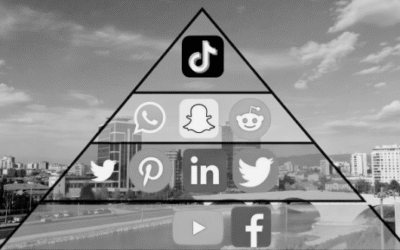Few names are as influential in the field of human resources as Dave Ulrich — often called the “father of modern HR.” With decades of research and consulting experience, Ulrich has shaped how organizations around the world approach talent, leadership, and culture. In this exclusive interview, he shares his perspective on the most pressing HR challenges, the evolving role of HR professionals, and what the future holds for the field.
Interview with Dave Ulrich
Q: What are the most common HR issues you’ve been seeing in the past few years?
Dave Ulrich: Business leaders increasingly realize that to adapt to changing business conditions and customer/investor/community expectations, they have to do more that articulate a future direction or strategy. They have to make sure that where they say they are going actually happens. HR professionals help turn aspirations into actions by focusing on three things: [1] talent: do we have the competence (skills and abilities), commitment (willingness to engage and work hard), and contribution (ability to find meaning from the work we do) of our people, [2] culture: do we have the right organization capabilities that enable us to shape an identity outside and pattern of behavior inside the company, and [3] leadership: do we have a depth of leadership throughout the company who are focused on the right things. HR professionals should be architects of talent, culture, and leadership as they help line managers deliver what they promise.
Q: Which HR competencies are more important now than they were before?
Dave Ulrich: We have spent 25 years studying the competencies of HR professionals. In that time, we have data from over 60,000 HR professionals and line managers about what HR competencies will increase personal reputation and business performance. In our most recent round of global research, we found that HR professionals are more personally credible when they are credible activists who build relationships of trust with business leaders and who take positions about how business can be more successful. We also found that HR professionals drive business performance when they are HR innovators and integrators, capability builders, and technology proponents. We can say with assurance what HR professionals around the world, in many industry types, and at all levels should know and do to increase personal reputation and business performance.
Q: Why did you name your book “HR from the Outside In”?
Dave Ulrich: For the last 20 years, we have been enamored with “strategic” HR where the strategy is a mirror that reflects what HR should focus on. We now believe that HR should look through the strategy to the outside world. Strategy becomes a window on both the general business conditions and on specific stakeholder expectations so that HR can connect their work to external factors. This shifts an HR focus from inside a company (employer of choice) to outside the company (employer of choice of employees customers would choose). All HR work (training, staffing, compensation, communication, organization design, etc.) can be done through an external lens. We have also connected HR work on talent, organization, and leadership to investor expectations.
Q: What is your prediction for the future of HR?
Dave Ulrich: I am an optimist about the value of HR because HR helps talent, organization, and leadership deliver value to key stakeholders both inside and outside the company. This raises the bar on HR, but the best HR professionals who recognize, master, and deliver the competencies we have identified will deliver more value.





